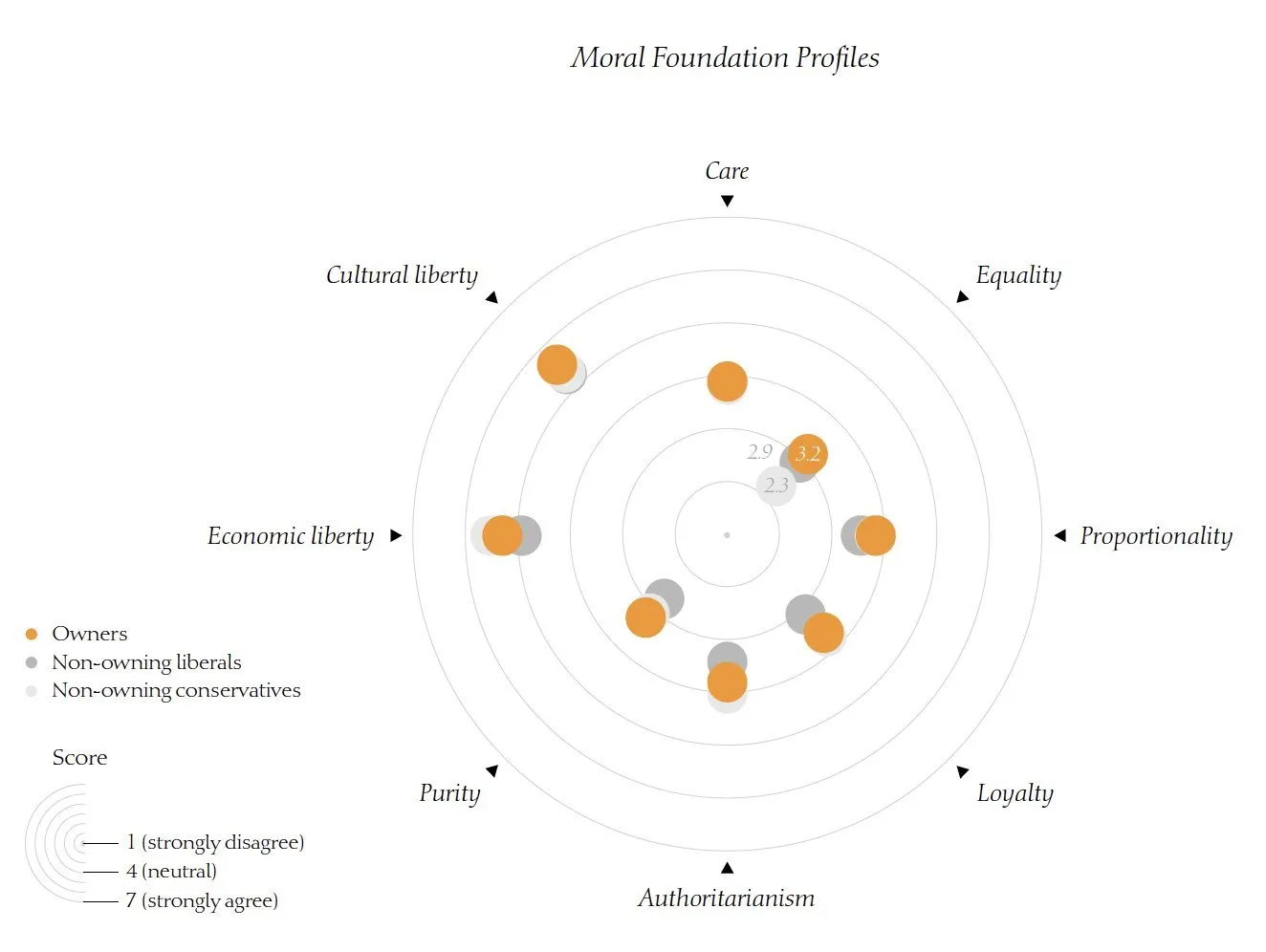A new survey has upended common assumptions about Bitcoin ownership, revealing that political affiliation plays little role in cryptocurrency adoption.
The research—conducted by Professor Andrew Perkins of Washington State University and Professor Troy Cross of Reed College—aimed to identify key factors influencing Bitcoin adoption in the United States.
“What we found was definitely our most shocking result,” Cross wrote on Twitter. ”We thought Bitcoin ownership would skew towards the political right, and towards libertarianism—wrong!”
Contrary to popular belief, the study, involving 3,538 individuals, found no significant correlation between political ideology and Bitcoin ownership.
“Bitcoin ownership is not meaningfully related to political orientation,” the authors stated. “Like Americans in general, American Bitcoiners can be found across the political spectrum—but they tend to be moderates.”
Demographically, Bitcoin owners closely resemble the general U.S. population in terms of race, ethnicity, income, education, and financial literacy. However, two factors stood out: “Bitcoin ownership skews young and male,” the report noted.
The researchers employed Moral Foundations Theory to analyze the values of Bitcoin owners.
They discovered that Bitcoin owners present a unique profile. They prioritize cultural liberty and equality more than the average conservative or liberal, match conservatives on purity, loyalty, and proportionality, and match liberals on care.

Intriguingly, the study found that very liberal respondents were the most likely to own Bitcoin, with 21.9% ownership, compared to 17.6% of very conservative respondents and 14.3% of moderates.
However, the researchers emphasized that these differences were not statistically significant enough to indicate a strong political trend.
“The 14% of Americans who own Bitcoin, it turns out, are not members of some particular political tribe. Rather, they are simply Americans who have taken the time to study the technology and formed positive attitudes about it,” the researchers stated.
While the demographics of Bitcoin owners had a similar profile to that of all Americans, they did share some specific traits.
“By far, the variables that correlated most strongly with Bitcoin ownership were: knowledge about Bitcoin, belief in the utility of Bitcoin, trust in the Bitcoin protocol and asset, and the perceived morality of Bitcoin,” the researchers reported.
Edited by Ryan Ozawa.
A new survey has upended common assumptions about Bitcoin ownership, revealing that political affiliation plays little role in cryptocurrency adoption.
The research—conducted by Professor Andrew Perkins of Washington State University and Professor Troy Cross of Reed College—aimed to identify key factors influencing Bitcoin adoption in the United States.
“What we found was definitely our most shocking result,” Cross wrote on Twitter. ”We thought Bitcoin ownership would skew towards the political right, and towards libertarianism—wrong!”
Contrary to popular belief, the study, involving 3,538 individuals, found no significant correlation between political ideology and Bitcoin ownership.
“Bitcoin ownership is not meaningfully related to political orientation,” the authors stated. “Like Americans in general, American Bitcoiners can be found across the political spectrum—but they tend to be moderates.”
Demographically, Bitcoin owners closely resemble the general U.S. population in terms of race, ethnicity, income, education, and financial literacy. However, two factors stood out: “Bitcoin ownership skews young and male,” the report noted.
The researchers employed Moral Foundations Theory to analyze the values of Bitcoin owners.
They discovered that Bitcoin owners present a unique profile. They prioritize cultural liberty and equality more than the average conservative or liberal, match conservatives on purity, loyalty, and proportionality, and match liberals on care.

Intriguingly, the study found that very liberal respondents were the most likely to own Bitcoin, with 21.9% ownership, compared to 17.6% of very conservative respondents and 14.3% of moderates.
However, the researchers emphasized that these differences were not statistically significant enough to indicate a strong political trend.
“The 14% of Americans who own Bitcoin, it turns out, are not members of some particular political tribe. Rather, they are simply Americans who have taken the time to study the technology and formed positive attitudes about it,” the researchers stated.
While the demographics of Bitcoin owners had a similar profile to that of all Americans, they did share some specific traits.
“By far, the variables that correlated most strongly with Bitcoin ownership were: knowledge about Bitcoin, belief in the utility of Bitcoin, trust in the Bitcoin protocol and asset, and the perceived morality of Bitcoin,” the researchers reported.
Edited by Ryan Ozawa.





